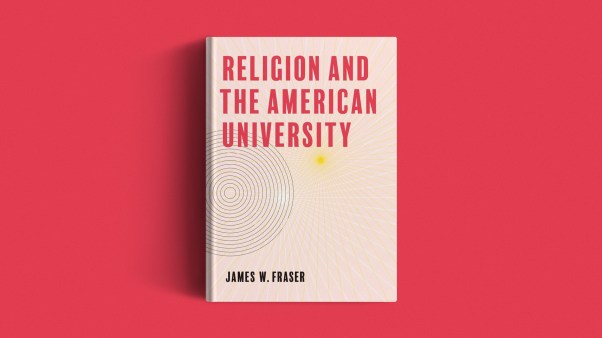Since its beginning, CHRISTIANITY TODAY has carefully avoided aligning itself editorially with any particular view of the millennium. Though the magazine’s first four editors were premillennialists, members of both the board of directors and editorial staff represented various millennial viewpoints. In our book reviews, we have both praised and criticized books written by amils, premils, and postmils. Moreover, articles have indirectly defended almost every millennial position conceivable. Yet, as a publication, we have always refrained from coming out in solid support of any particular view.
This is not to say that what we believe about the millennium is of no importance. Rather, it reflects our conviction that some doctrines are more crucial to the structure of Christianity than others.
Some doctrines—the Trinity and the Incarnation, for example—are more integrally related to the person of Christ or to the gospel. Yet other doctrines, such as baptism or the nature of the elect, may be very important, but do not demand universal allegiance. One can possess an enduring and consistent Christian faith and differ with another believer over this kind of doctrine. Explanations about the second coming of Christ fit this description. It is an important slice of biblical theology, but it does not require a single interpretation among Christians.
Legitimate Differences
Perhaps the greatest obstacle to an accurate evaluation of any particular interpretation of the millennium is the remarkable variety within each view. For example, radically different scenarios may be found among premillennialists. And the same can be said for amillennial and postmillennial views.
The dissimilarity among the alternative views is even more significant. A crucial distinction between premillennialism and amillennialism lies in the hermeneutics—the methods applied to interpreting Scripture. A common tendency is for amils to charge premils with an overliteral and wooden exegesis of some passages, combined with an extremely fanciful, if not nonsensical, interpretation of other passages.
No doubt many premils have done this. Some lave made ridiculous appeals to numerology while others have set dates for the return of Christ (see p. 10-I). But not all premils are of this type. Some of the most highly regarded exegetes of all times were premillennialists—Bengal, Alford, and Zahn. And in our own time, no one could even remotely charge Herman Hoyt, George Ladd, or Allan MacRae with fanciful flights of interpretation that ignored the grammatical, syntactical, and cultural data.
In similar fashion, premils have frequently charged amils with taking immense liberties in their handling of the biblical text. Amils, so it is alleged, are more willing to take a liberal attitude toward the authority of the Word.
By no means, however, is this true of all amils. Many are among the most rigorous and ablest proponents of the absolute authority of the Bible and stress the importance of this authority for the formation of Christian theology. Likewise, many amils are meticulous exegetes, ferreting out every trace of the grammatical, historical, and cultural data bearing on the text. Certainly this was true of the great nineteenth-century expositors like Meyer and Keil. And in the twentieth century, who has dealt more rigorously and reverently with the text than Leon Morris or Ned Stonehouse?
In short, we grant that both sides have occasionally been victimized by a faulty hermeneutic. But it is unfair and serves no useful purpose to level such blanket charges. By and large, both interpretations have been built on sound biblical scholarship.
Careful Exegesis
Too often, however, Christians have allowed eschatology to divide them. Rather than attack each others’ views, we believe it would be far better to engage in a solid exegesis of the relevant scriptural passages. Honest study of the Word as it relates to each millennial view will help us understand and appreciate our own convictions as well as the beliefs of those who disagree with us.
Such a careful analysis will also show us how surprisingly similar some millennial positions are to others. Take, for example, the pretribulational and midtribulational views of the return of Christ. As subdivisions of premillennialism, both views maintain that the church will never convert the world. Nevertheless, both say that God will restore the Earth to its original divinely intended order and that our planet will become the scene of a perfect and righteous kingdom. At the Second Coming, God will set up his earthly kingdom that will endure for a thousand years (though some have taken the thousand years to mean only a long period of time). Both pretribulationists and midtribulationists recognize that some Christians will suffer dreadful persecution before the Second Coming, and both agree that the church will be saved out of this awful experience when God’s divine judgment falls on the wicked nations of the world. Posttribulationists, like Barton Payne, believe Christians will escape this last and final tribulation, but they would agree with all the other aspects of premillennialism.
The only thing separating these three views is the degree and nature of surprise surrounding the return of Christ. Pretribs and many midtribs argue that the surprise will be complete and instantaneous with no warning whatsoever. Some midtribs and most posttribs argue that there will be some warning, but it will be brief. All three advise believers to live as if the sequence of events preceding the Second Coming will begin at any minute and the final events of the age will be upon us.
Strengths And Weaknesses
Viewed objectively, each of the millennial interpretations offers plausible and desirable perspectives on how God will complete his plan for mankind.
Postmillennialism. The greatest strength of the postmillennial view is its affirmation that this world is good and that God is working out his plan to restore creation to its original perfect state. Postmillennialists are optimistic. They believe it is worthwhile to invest their energies in trying to improve the world. Such constructive contribution can be absorbed into the divine design for man and thus share in the final vindication of God’s good creation. Consequently, it is not unusual for postmillennialists to be active in both evangelism and social action. They really believe God will use Christians to bring about a truly Christianized world before the second coming of Christ.
The greatest weakness of postmillennialism is its failure to take seriously the biblical pessimism regarding man’s efforts apart from God. A bit of human triumphalism—often naive—seems to shine through all of postmillennialism. Consequently, this view has the fewest adherents among the three major millennial positions.
Premillennialism. The greatest strength of the premillennial view is the earnestness with which its proponents have pursued the details of biblical prophecy. Characteristically, premillennarians are the ones who have written extended commentaries on Daniel and Revelation and other prophetic portions of Scripture and who have produced systematic theologies with extended sections on the last times. The premillennial position is buttressed by a singular attention to Scripture.
The greatest weakness of this view, however, comes from its strength. Though it relies heavily on Scripture, the truly distinct aspects of premillennialism are drawn almost exclusively from one chapter of the Bible and a certain unwillingness to leave any mystery in the way God works with man. The unexpected manner in which the Old Testament messianic prophecy was fulfilled should serve as a permanent warning to believers today. God does have his surprises. While the temple scholars drew elaborate scenarios for the appearance of the Messiah, Christ unexpectedly appeared in a lowly manger.
Amillennialism. The greatest strength of the amillennial view lies in its historic depth. Amillennialism was the consensus of the church for nearly 1,500 years—from the days before Augustine to the twentieth century. Though tradition alone does not guarantee orthodoxy, amillennialism has the benefit of surviving the test of time. The wealth of biblical and theological scholarship stands firmly within the amillennial camp.
The greatest weakness of the amillennial position is its tendency to seek freedom from the meaning of the text as interpreted grammatically, syntactically, and culturally. The common charge of exegetical liberty leveled against amils is not wholly unwarranted. Amils often display a characteristic tendency to foist figurative interpretations upon the text—figures they can easily adapt to their system of theology. This looseness of interpretation seems particularly evident in the older exegetes from Augustine’s day on. It is far less true of Calvin and some of the more recent amils like Robert Strong.
A Plea For Unity
But the greatest strength of all these millennial views is their common allegiance to Jesus Christ as the Lord of history. God has a goal for this planet as well as for individuals. Human life is neither aimless nor determined by evil powers that can destroy us. God is sovereign. History has meaning. And God is working through it to achieve the goals from which he has never deviated.
Do all these views of the millennium share a common weakness? I believe they do, though it is not, as some suggest, the immense energy and millions of words expended in interpreting Scripture to support a particular viewpoint. Rather, it is the acrimony, narrowness of spirit, and unfairness with which too many on each side have defended their own views against the alternatives. Too much is at stake to let our finite views on this subject further divide us.
And what of our efforts to explain those hope-filled verses of prophecy? Is such scholarship in vain? Hardly. Earnest endeavor to faithfully exegete and understand Holy Scripture is never wasted. Yet any polemic without fairness, courtesy, and love is a piece of eternity lost forever.










